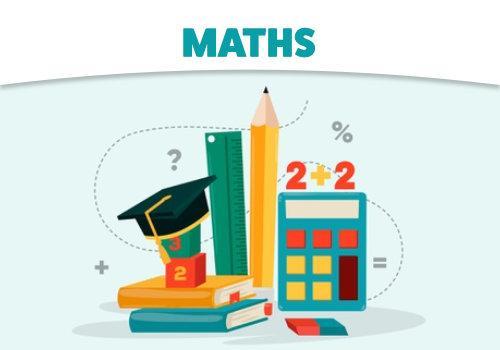Mathematics
Our Maths Vision - Intent
St Thomas’ Leesfield Primary School recognises that mathematics helps children to make sense of the world in which they live. It is used to make sense of and communicate information and ideas.
Our Mathematics curriculum is inclusive for all children and provides opportunities for each and every child to have a sense of the size of a number and where it fits into the number system. Skills learnt will be used to tackle a wide range of practical and real-life problems. To achieve this aim the children are guided through a carefully structured series of learning experiences, which enables them to develop mathematical knowledge, vocabulary, understanding and problem solving.
They will know by heart number facts such as number bonds, multiplication tables, double and halves and to use what they know to calculate mentally. The children will also be able to calculate accurately and efficiently, both mentally and with pencil and paper, drawing on a range of calculation strategies as well as make sense of number problems, including non-routine problems, and recognise shape, space and measure as part of their daily lives.
Implementation of Our Vision
Our Mathematics curriculum is based on the National Curriculum Programmes of Study and the Early Years Foundation Stage (EYFS). We can help our children acquire proficiency by giving a sharp focus to the relevant aspects of the programmes of study for mathematics based on the Non-Negotiables (Basic Busters/BBs) for each Year Group. We use aspects of Numicon, NRich and White Rose maths resources to teach our children.
Each class has a daily lesson that includes whole-class or group teaching as well as independent learning. During these sessions, children experience a wide range of activities and teaching methods. The lessons have a focus on developing skills and problem solving. The learning of times tables is a non-negotiable and children work towards knowing all of the multiplication and division facts by the end of Year 4. To improve our children’s skills and ability, we have embedded the use of TT Rockstars which is an online platform that children can use in and out of school. This fun, fast-paced, modern resource has really helped our children consolidate and practise their skills and knowledge to aid long-term memory.
Teaching assistants are actively involved with the teaching and learning process and work closely with class teachers to implement effective learning strategies with individuals or small groups. They also lead a range of intervention activities that enable our children to improve their attitudes, skills and knowledge (ASK).
Cross-curricular links with mathematics are encouraged across the school in all year groups. The teaching strategies used involve high-quality direct teaching, which is interactive and lively – with a variety of teaching styles used. Learning objectives and success criteria are clearly stated and shared with the class. Our children are actively involved in their own learning and self-assess and peer-assess to further improve and increase levels of understanding.
Certain skills such as mental calculation, problem solving and investigating are given high priority and this is encouraged by asking open and closed questions with system and purpose to further develop the children’s skills.
Each class (Y1-Y6) teach a topic-based maths lesson for each topic. This is so that our children understand that maths is not used in isolation but forms part of everyday life. Problem solving is embedded using resources such as White Rose Maths, which covers all the necessary strands including logic, trial & error, word problems, puzzles and patterns. We aim to teach problem solving through a variety of well-planned lessons that stretch our children and build on their resilience.
The use of mathematical vocabulary is also a high priority. Key vocabulary is displayed in each classroom so that children develop an understanding of essential terminology that underpins their mathematical development. Children are given regular opportunities to engage in purposeful mathematical dialogue and it is essential that they have opportunities for mathematical discussions at all stages of their learning. mathematical vocabulary learning is a very important part of our children’s language development and ultimately their mathematical proficiency.
Impact
The impact of our Mathematics curriculum is for the children to be mathematically proficient and also to develop an enjoyment of mathematics and a sense of achievement. Each and every child should achieve mathematical skills to give them the confidence to apply these in their everyday life. We aim for every child to have a quick recall of facts and procedures. Children will have a flexibility and fluidity which will help serve them in future life experiences and they will learn to make links in their learning. These skills will enable the children to move between different concepts and representations of mathematics and recognise relationships and make connections.
Key Assessment Criteria Maths
Mathematics Learning Resources
Please use the links below to access our learning resources.
